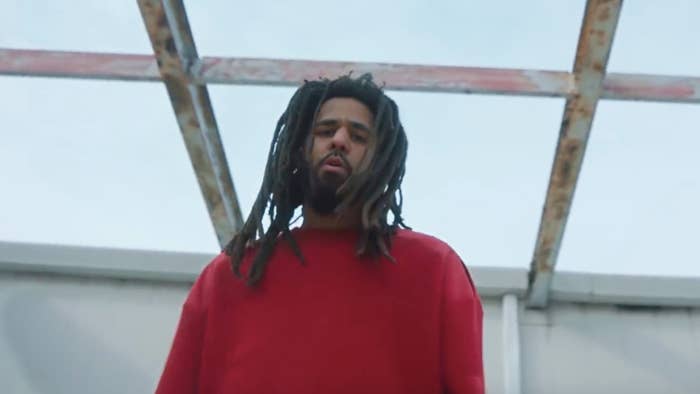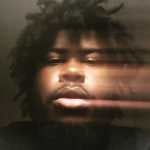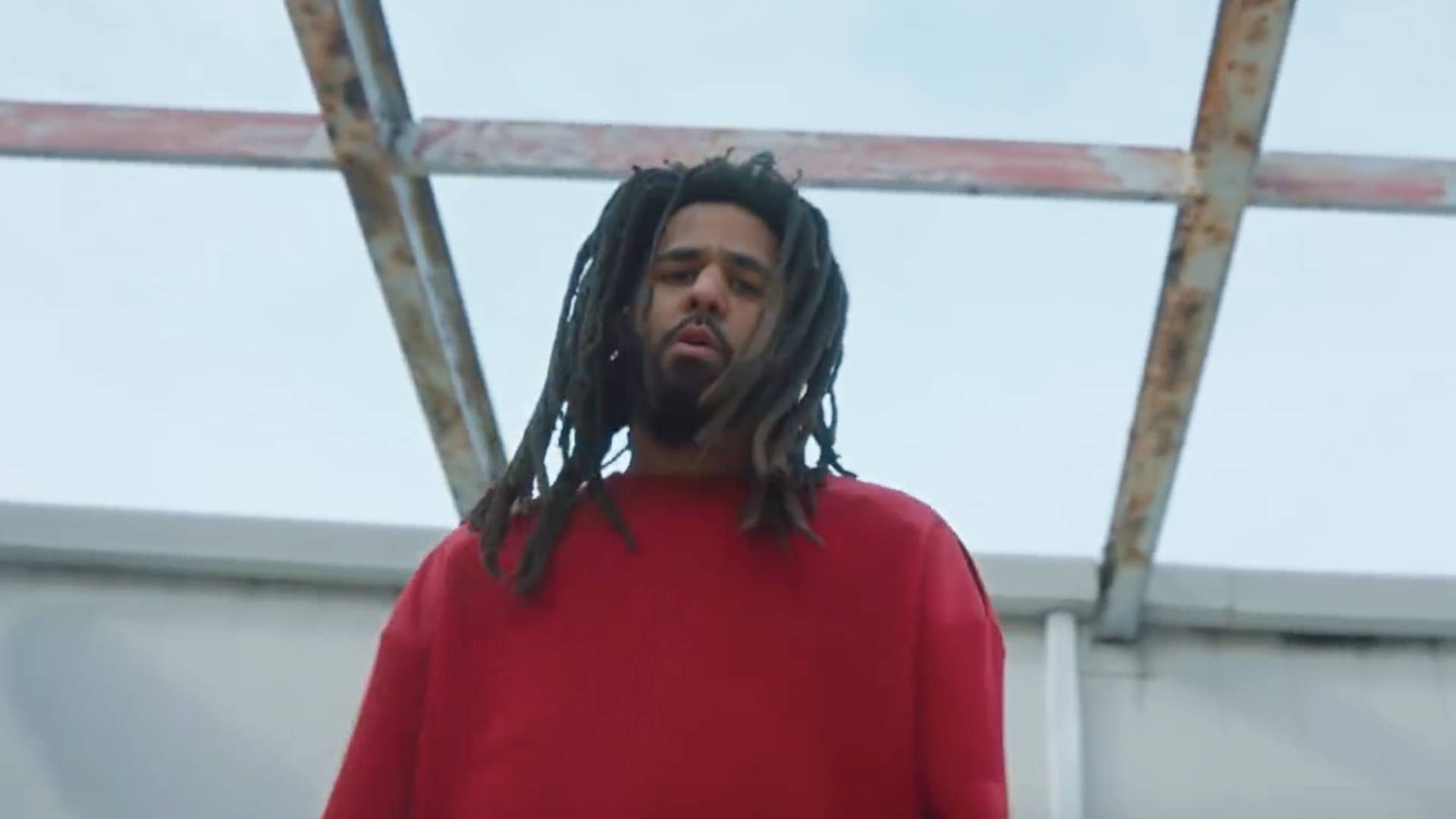
During a conversation with Kevin Durant on The ETCs podcast, J. Cole got candid on his feelings about his peers. He said that he wanted to “strip competition” from his creative approach, and embrace Drake and Kendrick, who are widely regarded as his closest peers, instead of being standoffish toward them.
“I’ve never been a reach-out [person], especially when there’s competition involved,” he explained. “It’s almost like working out together. I guess in the NBA, in the past, that was unheard of. Like, ‘Why would I work out with this n***a? I’m trying to destroy this n***a.’ That was my mentality early on. But as I’ve gotten older, I realize no one is truly my peer or can relate to what’s going on in my life better than these people right here.” He went on to add, “In the time when I’m not doing this, I don’t wanna be like, ‘Damn, we never kicked it, we never really did nothing.’”
That would be especially lamentable when the root of the distance isn’t derived from actual wrongdoing, but an ego-based “F everybody else” mindset. Cole expressed a healthy perspective that would benefit the rest of rap if it were the norm. An artist can vie to be the best—like Cole did throughout The Off-Season—without throwing peers under the bus. Rappers can create music with a chip on their shoulder, but rap rivalry doesn’t need to veer into acrimony. It’s possible for one to tap into their own greatness and stir healthy competition without dimming others’ light. The culture is better without artists delving into the kind of fracture that hinders collaborations.
It’s true that some beef is unavoidable. It’s understood that issues like Drake and Pusha-T/Kanye, or Yo Gotti and Gucci Mane, come from personal messiness that spilled over into the booth. It’s also true that as long as the industry is predicated on bad business, strife like Ice Cube vs. N.W.A. will occur. And fractures between Tupac and Biggie, 50 Cent and Ja Rule, as well as what’s going on in Jacksonville right now, are deeper than rap. The rap industry is intermingled with the streets.
But there’s a very specific kind of competitive tension that doesn’t serve anyone. It comes from a level of ego and pettiness that some artists think they need to weaponize in order to be No. 1. It’s been conventional wisdom that a little tension while jockeying to be deemed “king” is necessary, but the larger negative consequences outweigh whatever fleeting fun is had by spectating drama.
There were time periods where The LOX and State Property/Dipset records, Mobb Deep/Jay-Z records, and Prodigy and Beanie Sigel collaborations were impossible because Jay-Z was in “takeover” mode and drawing lines in the sand. We never got a Biggie and Ghostface Killah/Raekwon classic because Ghost and Rae disliked Big and Bad Boy’s flashiness. Foxy Brown and Lil Kim were rumored to be doing an album, but it never happened because as DJ Clark Kent remembers, “all of a sudden, they just weren’t cool” (and it looks like the same fate is befalling Cardi B and Nicki Minaj). We never got any prime Dipset and G-Unit collaborations, especially after Cam’ron and 50’s infamous Hot 97 call. There was a time when Rick Ross had pointless issues with Jeezy and T.I., preventing collaborations. Game vs. 50 and Ross vs. 50 are classic rap theater, but we’re still unclear what actually caused that beef besides ego. 50 also threw shots at Wayne just because the masses started calling him “the best rapper alive.”
We’re talking about potential missing pieces of the rap canon, all because of ego and the misconception that one shouldn’t collaborate with peers if they feel like they’re rivals. Would you rather have these potential collaborations, or the subliminals, diss songs, and drama derived from them? If you were to ask these artists the root of all these rivalries, you’d get some platitude about the “competitive nature” of rap.
Ghost has said their issues with Big “wasn’t really nothing.” He explained, “I was 25 when I was popping that shit. You know, you’re young and just ready to do whatever, especially where I come from.” That sentiment speaks for just about everyone in the aforementioned paragraph. But you can pop your shit and be at the top of your craft as an MC without taking things left.
Cole did this on The Off-Season’s “Applying Pressure,” a track he ended by gloating and reminding everyone, “Sometimes you gotta come through and just do it at the level that you do it in front of every nigga face, so they know the difference between you, the real niggas, and the mothafuckin’ fraudulent niggas.” He kept that competitive energy throughout the album without throwing specific shots at anyone, especially his closest peers, Kendrick and Drake. The song title “Applying Pressure” makes no mistake as to what his intent was, but he lit the fire respectfully. Cole rapped with a fervor throughout the project, deeming himself a member of rap’s Mount Rushmore on “100 mil” without starting friction with any of his peers. The Off-Season is the kind of boisterous rap affair that satiates rap purists while avoiding unnecessary drama. If he uttered just one clear subliminal on the album, it would have distracted many people from his overall effort.
Cole showed that you can stoke healthy competition in rap (and even call out the fraudulence) while still having love for your peers. That’s also why he hosted the Revenge of the Dreamers 3 sessions, where he invited a who’s who of rap to collaborate with him and other Dreamville artists. He acknowledged their skills and wanted to lock in with them creatively, not shun them.
Cole isn’t alone in that mindset. Lil Wayne and Kanye are GOAT figures to many, and they’ve had their fair share of rap drama, but neither ever got to the point where they seemed publicly resentful of other artists because of a sense of superiority. They got into it with foes for reasons unrelated to vying for the throne. Wayne had issues with Young Thug stemming from Thug’s proximity to Birdman, but that’s a different kind of conflict. He also had his moments with Jay-Z in 2006, but they ultimately ended up collaborating and becoming “friends.” Nicki Minaj has revealed that Wayne jokingly tells her that he’s going to kill her on a record, but it’s all based in the sport of rap—Young Money’s big 3 bring the best out of each other in a good way, like on their recent “Seeing Green” collaboration.
Kanye has had his tabloid drama with Drake, but again, that was a different kind of beef. His closest moment of pure rap competition was his 2007 album-sales duel with 50 Cent, who took his push for the King of Rap crown to extremes. It got to the point where the Queens rapper dissed AZ and soon-to-be labelmates Mobb Deep for no good reason on “Piggy Bank,” and Wayne and T.I. both admitted that they knew he was only goading them because they were hot. 50 has repeatedly vocalized that he felt the rap game was like the block, and his inner Marlo Stanfield made him feel like taking on the competition was a necessity to make the most money he could. But that capitalistic mindset doesn’t garner long-term rap success. In reality, there’s more money, and great music, to be made with each other.
Griselda rappers Conway, Benny the Butcher, and Boldy James probably all feel like they’re the best rapper alive right now, as do Pusha-T and Freddie Gibbs, but that only fuels them to show out in their collaborations with each other. They’re regarded as the new school’s best examples of #realhiphop, but none have allowed their competitive drive to open up an actual wedge in their relationships. Gibbs calls himself one of “the best rappers alive,” but he isn’t adversarial with peers; he’s currently collaborating with a slew of artists so he can prove it on his next album.
Right when it looked like Future and Thug were about to fall out over who had “the juice” in Atlanta, they peaced it out and have since released great music together (as have their allies). Similarly, if Lil Baby and Lil Durk had egos, they could have let fans’ constant comparisons get to them. But instead, they’re coming together to release a collaborative album this summer.
There’s a misconception that rap is “too friendly” right now, but it feels like what these people really mean to say is that there are too many lackadaisical “happy to be here” collaborations, such as the worst moments on DJ Khaled albums. But the best moments Khaled has orchestrated, such as Lil Baby and Lil Durk’s “Every Chance I Get,” or classic posse cuts like “We Takin’ Over,” “I’m On One” and “I’m So Hood,” tell a different story. There are plenty of examples of artists being cool with each other while giving their best on the same track. Kendrick, Cole, and Drake’s collaborations have resulted in some of their most well-regarded work—even though Drake and Kendrick fell out after Kendrick’s “Control” verse.
The classic onslaught was misconstrued as a war cry, as Kendrick qualified his callouts of peers with “I got love for you,” and later clarified that he was simply trying to “leave a mark” musically. That’s why Pusha-T, one of the artists mentioned, tweeted, “I hear u loud and clear my nigga…” and revealed that Kendrick later thanked him for understanding his intent.
Kendrick has largely stayed out of the fray of disses and subliminals (aside from moments with Big Sean, Drake, and Jay Electronica), releasing some of the best rap music ever and pushing his peers not with callouts, but by example. He doesn’t have to put himself above his peers—the quality of his work compels the people to do that for him.
Another “Control” commenter was Travis Scott, who admitted, “That type of rap bores me,” in response to a fan. He speaks for a sea of genre-bending, melodically inclined MCs who aren’t infatuated with being seen as the greatest lyricist. Instead, they’re more focused on making great songs. Nowadays, it seems like you don’t have to actually be the best rapper to make the best rap music in some fans’ eyes. The presence of boundary-pushing MCs like Travis, Lil Uzi Vert, and Playboi Carti has quashed the “king of rap” furor. These artists simply have a different motivation in their creative process.
There was a time when the push for the figurative rap crown would have every top-selling rapper at odds with each other, just an errant subliminal away from all-out war. But with more rap-listening consumers than ever, and too much tragic violence in the rap game, artists are starting to realize that there’s no need for petty strife. Wayne proved you can be at your best (and seen as the best) locked into your own world, and Kanye demonstrated that giving peers adulation (and asking them to collaborate) can result in some of the best music ever. Cole is an artist who’s learned from both, and he’s setting a precedent for the stars to follow that rap can be based on healthy competition without getting ugly.


